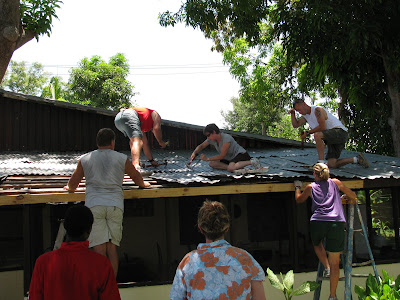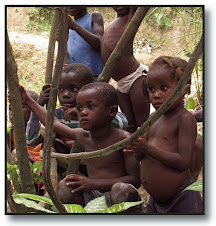
Automatic vs. 5 speed manual shift
I'm not sure what the ages of my blog readership may be but if it mimic's the ages of those who come on mission trips with PH-H to Haiti it probably ranges from 17-mid 70's. When I came of age to drive it was the era of the "muscle car" and if you had the real thing you had a manual transmission. A "4 speed on the floor" was the phrase we often used and though automatics had been around for decades they just didn't seem appropriate with the big horsepower engines of the 60's and 70's. Manual shifts are still available but today they are associated more with fuel economy, cheaper to buy, or power to haul heavy loads and climb steep inclines(hills & mountains).
I know by now your thinking you may have gotten on the wrong blog site. Possibly Auto Trend or Hot Rods & Muscle Cars but no this is the official site of Project Help-Haiti a blog dedicated to missions. A short story will get us back in that direction. My foreman at the Borel Missions Campus is fondly called "Big Ben" he is not big and his real name is Joseph he isn't sure why everyone calls him "Big Ben". Several weeks ago I sent Ben and several visiting Americans to Liancourt a nearby town to buy 50 cement blocks so we could elevate some reclining chairs for our visiting dental team. That day they had borrowed Ben's brother's Toyota 5 speed truck. Ben was shifting through the range of gears and as he shifted from 4th to 5th the gear shift shift lever came unbolted to the transmission, Ben who is mostly unflappable and never for a loss of words looked over at the Americans and said" this isn't good I think we got a problem". To continue on down the road and accomplish the task at hand that morning one of the guys reached down through the floor board and as Ben pushed on the clutch engaged the transmission into gear with his fingers. The rest of the trip back to Borel was made in a mid range gear a good choice for that situation. If they had chosen first gear they would have had to creep along at under 10 mph if a higher gear they would have struggled to take off with such a heavy load and would not be able to climb any sort of inclines.
Manual transmission vehicles are the choice of most mission's operations in Haiti. In fact the new truck PH-H is purchasing will be a 5 speed manual transmission. The landscape is varied and often brutal in Haiti. There are very few paved roads, mountains that peak at 8,000 feet, rivers to ford, hairpin curves, steep inclines, mud during the raining season and sandy beaches and desert like areas. Missions organization rely on manual shift 5 speed transmissions that is a fact when they choose a vehicle.
To my way of thinking the mission organization itself needs to be operated like a manual shift transmission. An automatic is made for ease of operating comfort but with an automatic comes some limitations. Yes you just put it in drive and go but often you lose touch with the machine and the road. You are limited to pulling, pushing, climbing, slowing down on steep inclines with out burning up the brakes, and getting unstuck in sticky situations. If you are a missionary or visit the mission field or manage or sit on a mission board you know that your organization encounters all those types of situations at some point, at times it seems all in the same day.
I took over as director of PH-H on Nov. 1st 2009. Project Help-Haiti is an organization that was established in 1967 , we aren't the oldest mission around but we are approaching a half century. With those four plus decades comes a lot of baggage ( problems). Jan. 12th 2010 not only changed the landscape and lives of Haiti and it's people but also the mission organizations working there. PH-H started out in 1967 as a manual shift organization and then we traded it in for an automatic, we often do that as people and organizations. My first two new cars after marriage were manual shift out of necessity and practicality, later on we switched to automatics out of comfort. Now as the new director of Project Help-Haiti I believe the switch needs to be made to make our organization once again a 5 speed manual transmission , I've discovered myself saying of late, "this isn't good I think we got a problem". In God's love, steve














